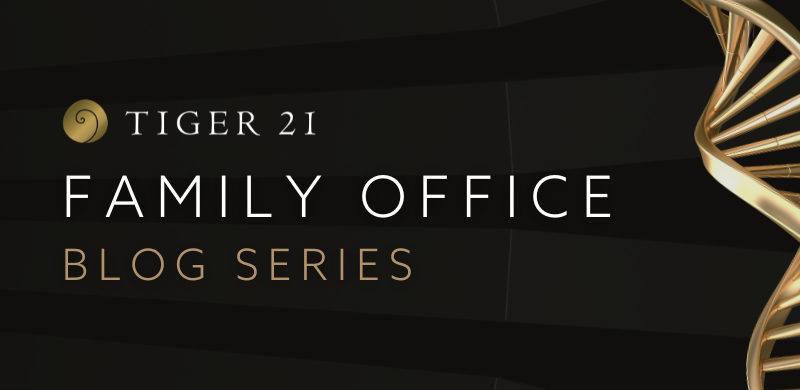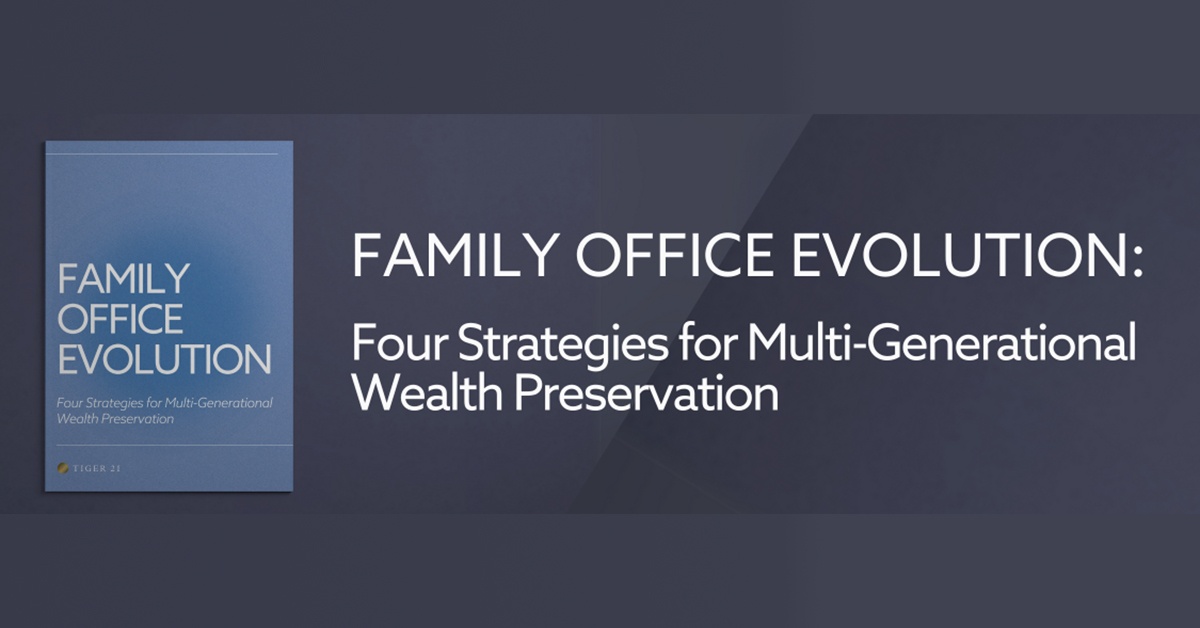What are the Types of Family Offices?

UHNW families who are considering a family office may be faced with the question: What types of family offices are there? While there are primarily two common types of family offices, single family offices (SFOs) and multi-family offices (MFOs), there can be variations and hybrid models based on the family’s preferences and circumstances.
Single Family Office
Single family offices (SFOs) are private entities established by a single wealthy family to exclusively manage their financial affairs. SFOs serve the needs and objectives of the family with highly personalized and tailored services. They offer an elevated level of control, allowing the family to have direct oversight and influence over their wealth management strategies. SFOs are typically established by families with substantial assets and complex financial situations, seeking comprehensive attention to their affairs.
Multi-Family Office
On the other hand, multi-family offices (MFOs) cater to the needs of multiple families, serving as a shared platform with cost efficiencies. By pooling together the resources and expertise of several families, MFOs access a broader range of services while sharing the associated expenses. MFOs offer a range of services similar to SFOs, and typically have a team of professionals with diverse skill sets to meet the various needs of the participating families. MFOs are a popular choice for families with significant wealth but may not require the level of exclusivity or customization provided by SFOs.
Some families may establish a SFO initially and later transition to a MFO to take advantage of shared resources. Alternatively, some multi-family offices may offer certain families the option for additional customization, resembling elements of a single family office.
The choice between an SFO and an MFO depends on factors such as the size of the family’s wealth, the complexity of their financial affairs, the need for customization, and the desire for cost efficiencies and shared resources. The decision revolves around finding the model that aligns with the family’s goals, preferences, and long-term vision for their wealth management.
It’s worth noting that within these two main types, there can be variations and hybrid models based on the preferences and circumstances of individual families.
Outsourced Family Office
An outsourced family office is a specialized model that offers the benefits of a comprehensive family office without the need for creating an in-house team. It combines elements of both single and multi-family offices while leveraging external expertise.
Operating as a service provider, an outsourced family office model streamlines the complexities of wealth management and provides access to skilled professionals, tailored strategies and services, and advanced technology, without the operational burdens of managing an in-house team.
Outsourced family offices provide cost efficiencies by sharing resources among multiple families, making them particularly appealing to ultra-high-net-worth families who desire a higher level of customization and expertise than MFOs offer.
Benefits of outsourced family offices include:
- Expertise: Access to skilled professionals across various financial disciplines.
- Customization: Tailored strategies based on family goals and values.
- Cost-Efficiency: Shared resources to reduce operational costs.
- Focus: Eliminating administrative and operational distractions.
- Flexibility: Services that can be scaled based on changing needs.
Considerations of outsourced family offices include:
- Cost: While often more affordable than a dedicated single family office, outsourced options still come at a price.
- Privacy Concerns: Sharing resources with other families may raise confidentiality issues.
- Control: Families may have less direct oversight compared to in-house models.
- Cultural Fit: Finding the right outsourced provider that aligns with your family’s values is essential.
- Communication: Ensuring clear communication between your family and the outsourced provider is vital.
While outsourced family offices provide a middle ground between single and multi-family office models, families should carefully assess their specific needs, privacy concerns, and the desired level of control before opting for an outsourced family office. Working with a reputable provider is crucial to achieving the desired outcomes and successfully managing complex wealth management needs.

Embedded Family Office
An embedded family office is a unique model that integrates specialized family office services within a larger financial institution, such as a private bank or investment firm. This approach offers families tailored wealth management services while leveraging the resources and expertise of the parent institution.
Operational within the larger framework, an embedded family office functions as an extension of the financial institution. This model allows families to benefit from the institutional support, infrastructure, and global reach of the parent organization.
Embedded family offices offer the advantage of institutional backing, access to a broader network, and established technology platforms. They can be more cost-effective than a dedicated in-house SFO and provide a higher level of customization and personalization compared to MFOs.
Benefits of embedded family offices include:
- Expertise: Access to specialized professionals and institutional resources.
- Global Reach: Leverage the parent institution’s global presence and capabilities.
- Cost-Efficiency: Shared resources reduce costs compared to dedicated SFOs.
- Customization: Tailored services aligned with family values and objectives.
- Infrastructure: Utilize established technology platforms and operational support.
Considerations of embedded family offices include:
- Conflicts of Interest: Potential conflicts between the embedded family office’s services and the parent institution’s broader business interests.
- Autonomy: Balancing the family’s specific needs with the broader policies and procedures of the parent organization.
- Cultural Fit: Ensuring alignment between the family’s values and the institution’s approach.
- Privacy Concerns: Managing confidentiality when operating within a larger institution.
Embedded family offices offer a compelling balance between personalized services and institutional backing. Families should carefully assess the alignment between their needs and the capabilities of the parent institution, considering factors such as cost, service quality, and the level of autonomy they desire. Selecting a parent institution with a track record of delivering comprehensive services is crucial for an embedded family office arrangement.
Hybrid Family Office
A hybrid family office structure combines elements of both SFOs and MFOs, offering a flexible approach to wealth management.
In a hybrid family office, certain services and resources are shared among multiple families, similar to a multi-family office. This allows for cost efficiencies and the pooling of expertise. A hybrid family office also provides a level of exclusivity and customization typically associated with single family offices. Families may have the option to receive additional personalized services and maintain a higher level of control over their affairs. This customization can include tailored investment strategies, specialized estate planning, and unique family governance structures.
The structure and features of a hybrid family office can depend on the needs and preferences of the participating families. It is often designed to strike a balance between the benefits of shared resources and individualized attention and control.
Hybrid family offices are attractive for families seeking a combination of economies of scale, expertise sharing, and personalized service. They provide a solution that can be tailored to accommodate the unique requirements of each family within the hybrid structure.
What type of family office is right for you?
The type of family office for you depends on the complexity of your finances, desired level of customization, and cost. Assessing financial goals, family dynamics, and the level of attention you require will help you determine which family office model aligns best with your needs. For more on family offices, read our comprehensive blog.
Download the Family Office Checklist
About TIGER 21
TIGER 21 is an exclusive global community of ultra-high-net-worth entrepreneurs, investors, and executives.
Explore the TIGER 21 Member ExperienceMember Insight Reports









